SONY
CDP-337ESD
modified in
December 2007
My apologies for
taking photos with flash - hence the horrible visible dust
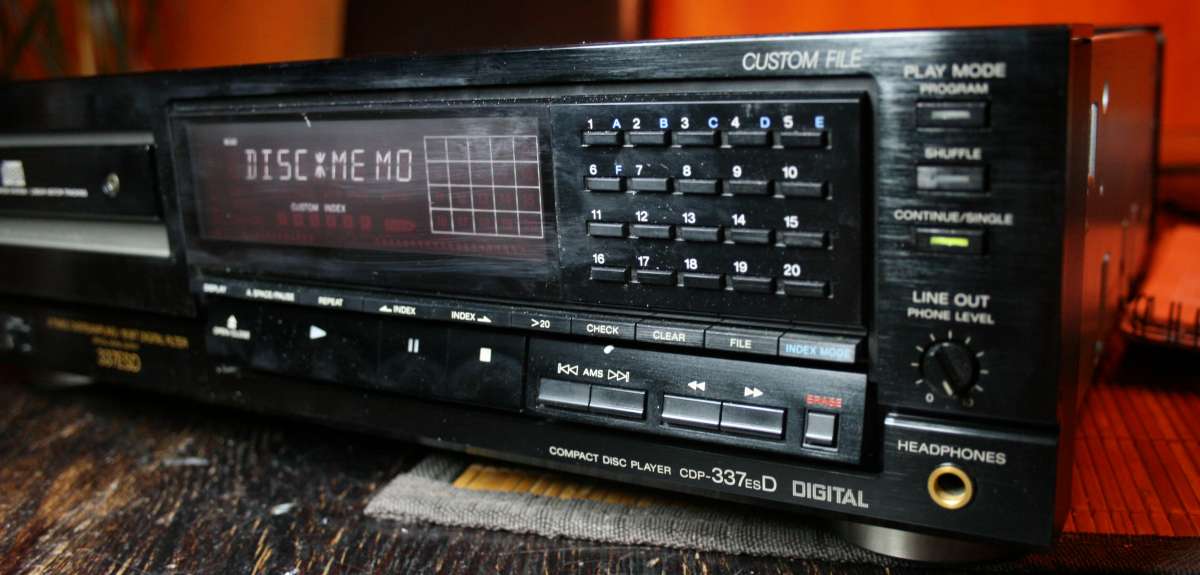
The cheapest of
the "TDA1541- equipped" Sony range - the Sony CDP710 and its sibling
CDP950 on the outside
seemed to me identical to my beloved CDP-227ESD but on
close inspection I found that the PCB of 227 is muuch better, with
better regulation, better caps, better DAC system - better everything.
The face-plate is identical BUT in 227 it is metal, in 950 - all
plastic. Also mechanisms are different.
So looks can be
deceiving.
Similar thing
applies to Sony CDP-337ESD versus 227ESD. They
look
identical. Also the DAC seems the
same - a paralleled TDA1541A (non-s)Sometimes the 337 has a non-A
variant (better to my ears)
BUT - first -
the Sony
CDP-337ESD is TWICE as heavy,
due to double floor plate,
metal chassis versus plastic, and twice as big transformer, and last
but not least - a gigantic mechanism of 337 being Sony's top KSS190A.
The
227's mechanism 151A is not bad either, but nothing prepared me for the
190A. It is so well made, that Accuphase used it in all their top
models. Also Teacs VRDS uses sony mechanism with additional pressure
plate. The mighty KSS190A is also similar to Kenwood's
X9010
mechanism. Absolutely stunning
masterpiece of engineering. Similar to CDM1 from Philips.
All in all - Sony CDP-337ESD is one of the best made CD
players I ever saw, in my
opinion all things being equal it slightly beats Marantz 80, 94, 95,
94MK2, and also Philips 880 and 960.
Arguably only
Sony's own 555ESD and
of course grundig
9009 comes
better by a hair. I am really impressed.
The Sony 333 ESD is
about equal but it has only one TDA1541A chip not two.
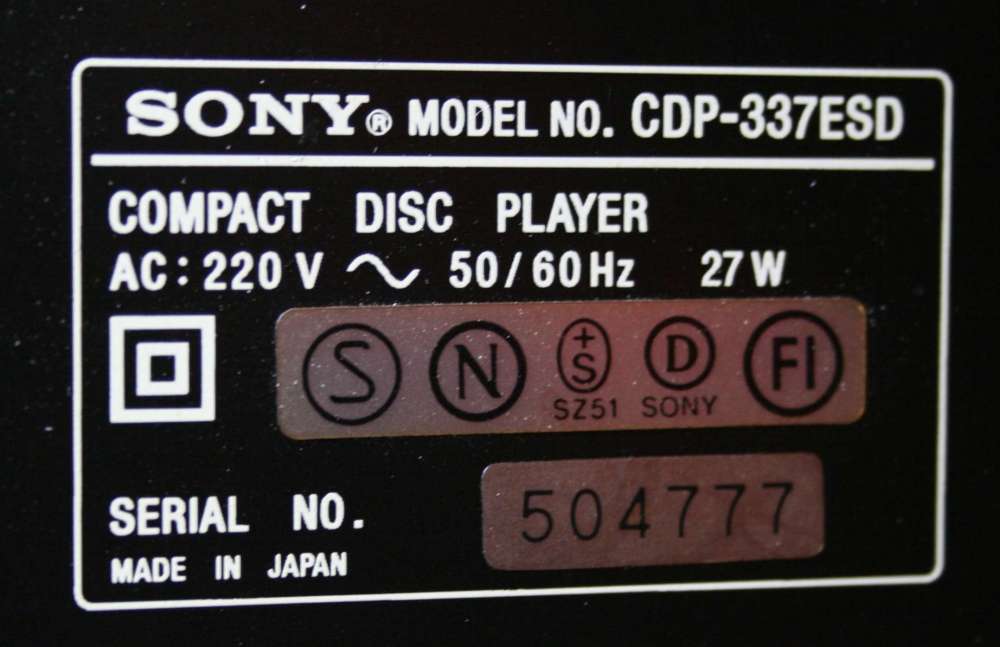
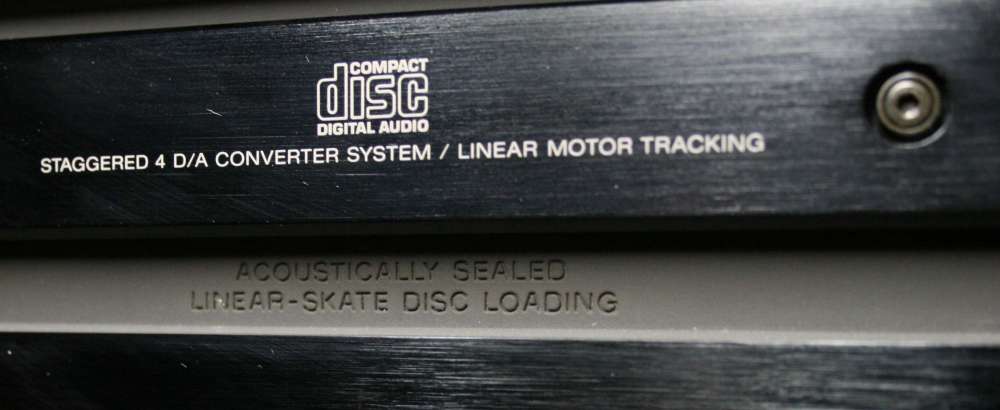
What a bullshit
about staggered 4D/A. They simply put two paralell stereo chips,
thats all.
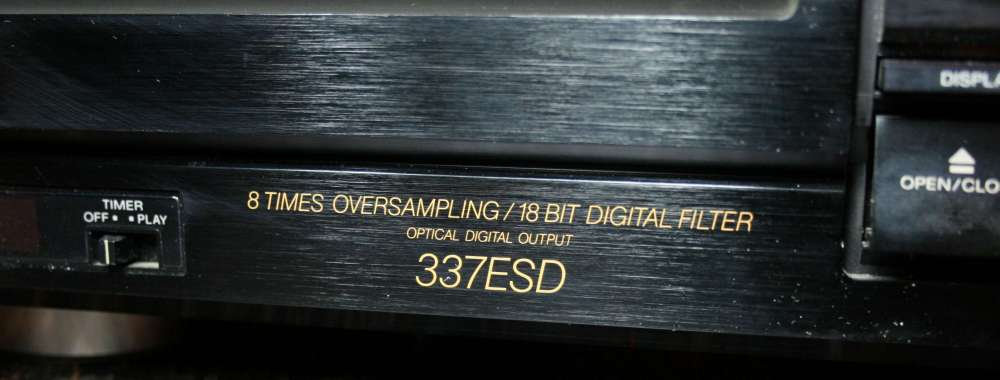
Now if I could
only find out how to kill oversampling in this player ! I MUST make it
a NOS.
The Sony CDP-337ESD
mechanism and laser - Sony KSS190A
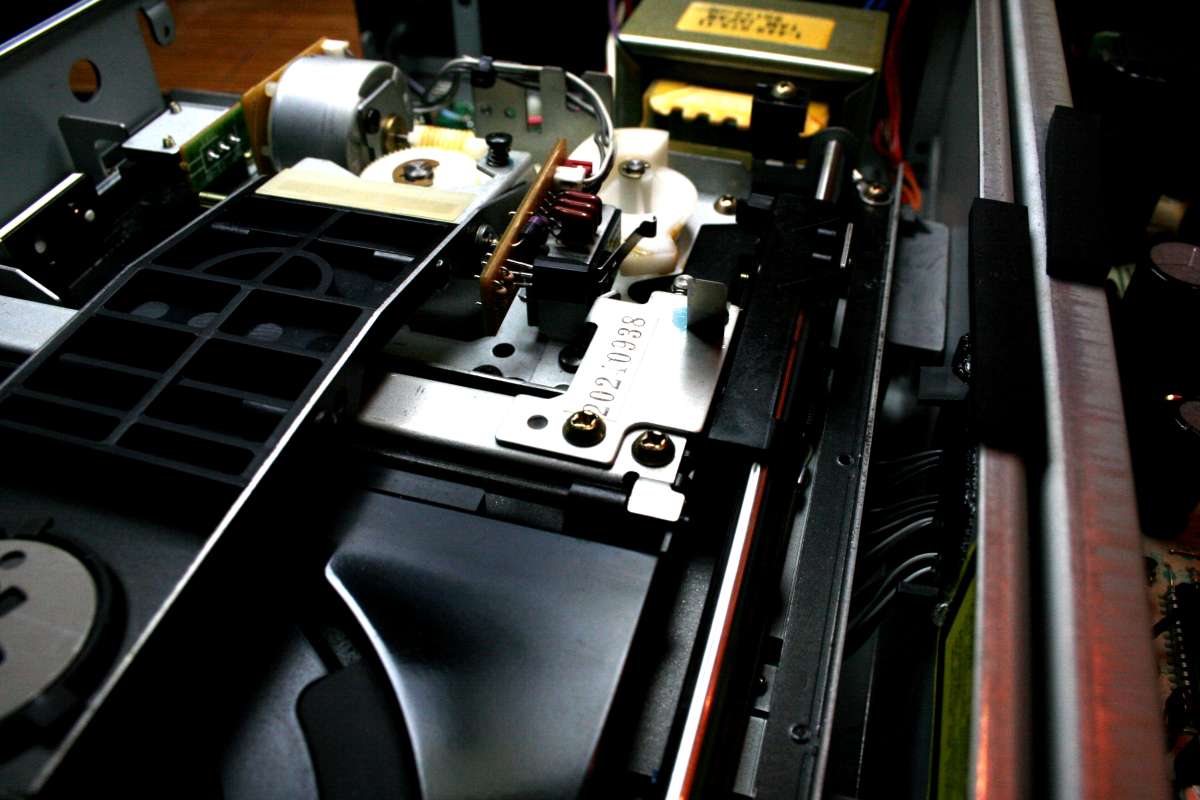
Everything in
this mechanism - the drawer, the motor, the sub chassis, the clamp -
all parts are metal. The operation is not a pleasure - IT IS A DELIGHT !
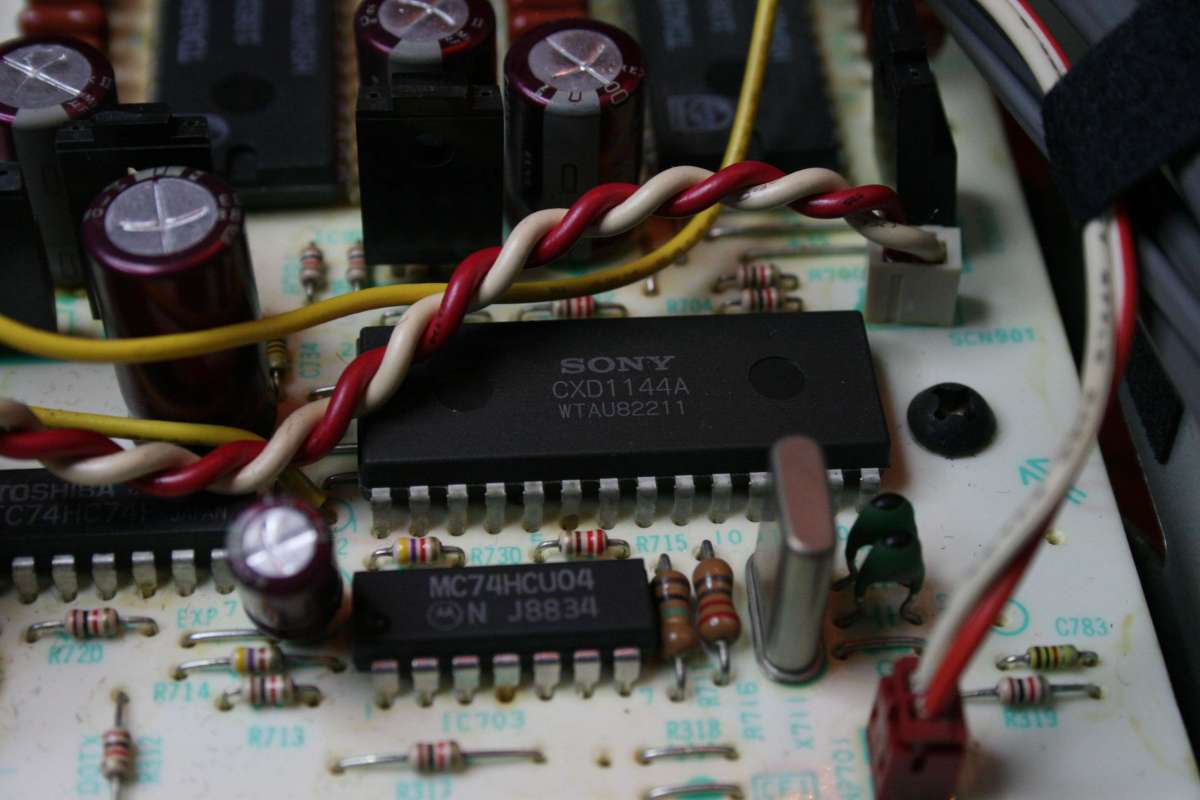
The clock is 16
Meg type

Unlike all other
SONY's, the PCB is white (??)
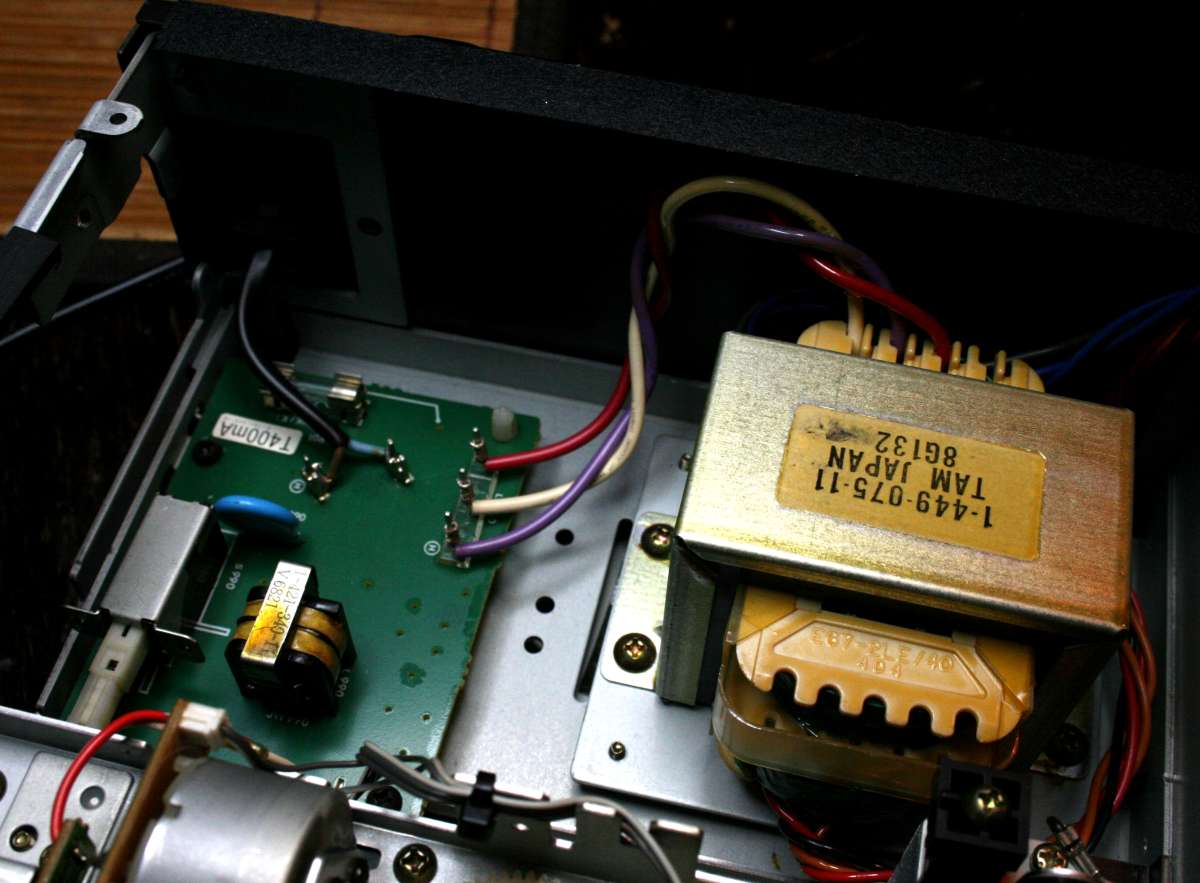
Plenty of room
in the corner for the new transformer for lampizator. The transformer
is about twice as big as in CDP-227esd
The AC stealing
point for lampizator transformer is the violet and white wire pins.
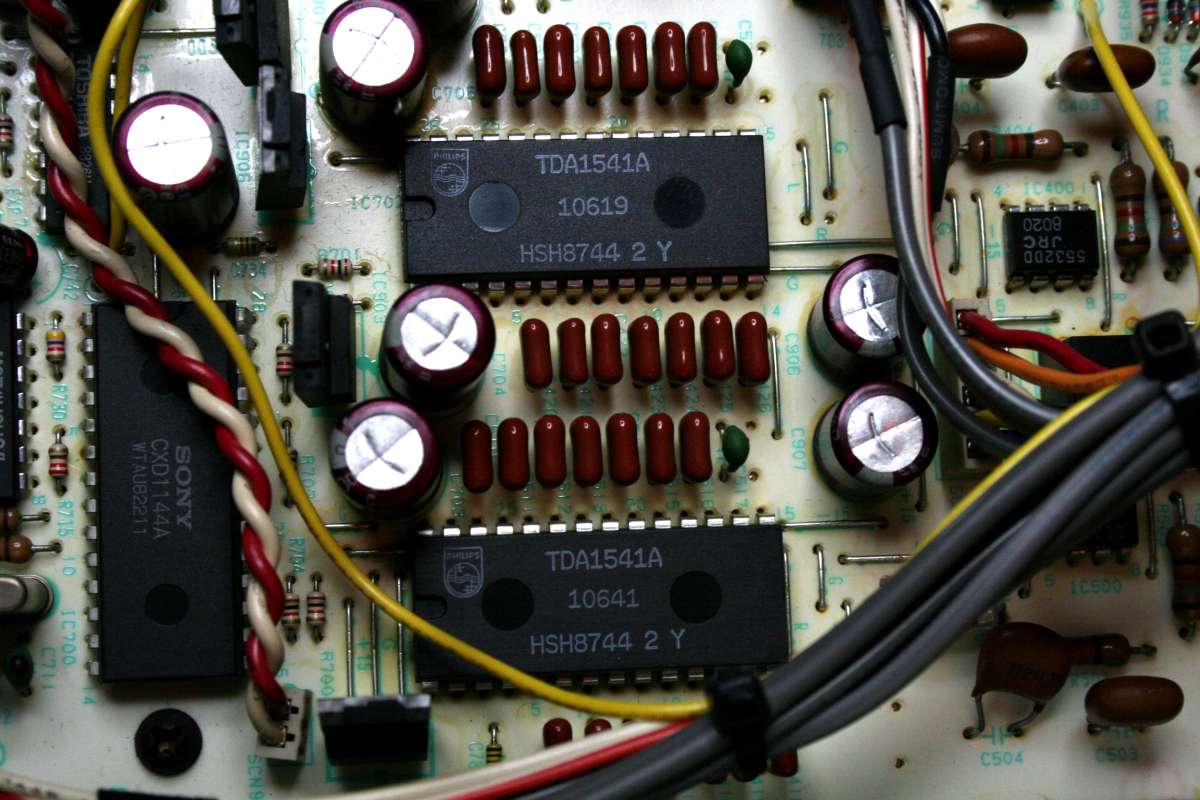
Some other Sony CDP-337ESD's
have a non-A chips, but mine does have A.
The decoupling
caps (burgundy coloured 14 caps per one DAC ) are 100nF. I would
prefer 470nF but at least these are premium quality, not SMD crap.


No comments.
These caps are to be found in Ongaku power supply.
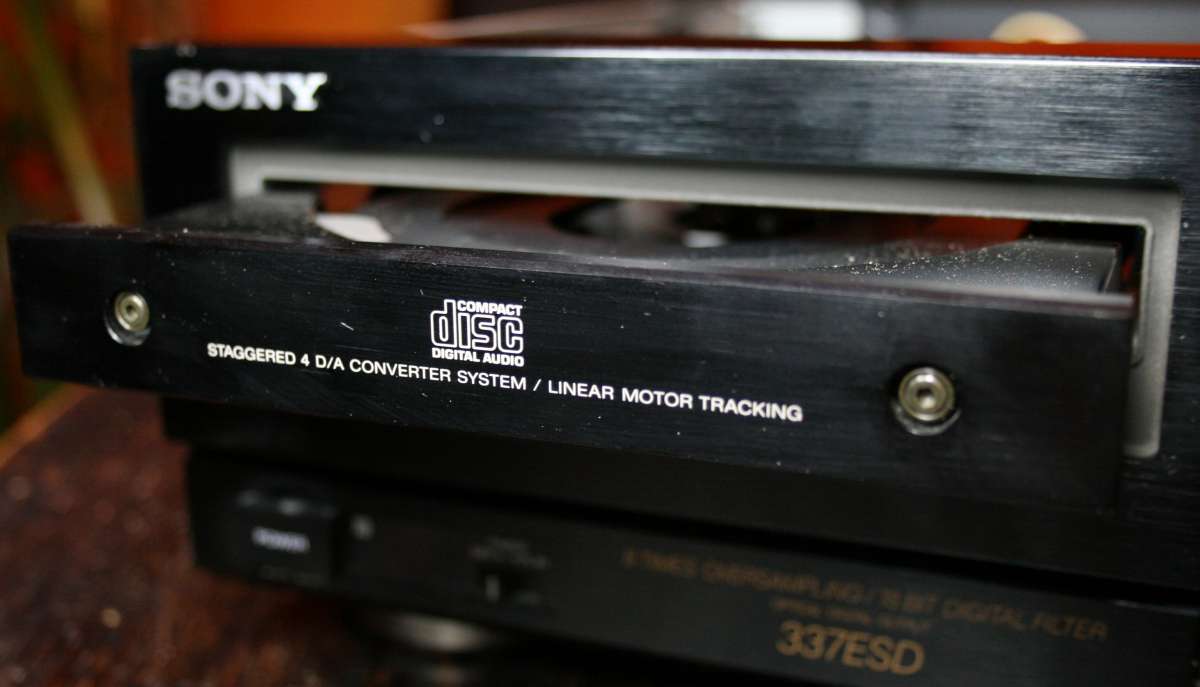
Unlike for
example in AKAI CD55 cheap plastic impersonation, this
whole drawer is METAL and the metal decor face is attached by REAL
screws.
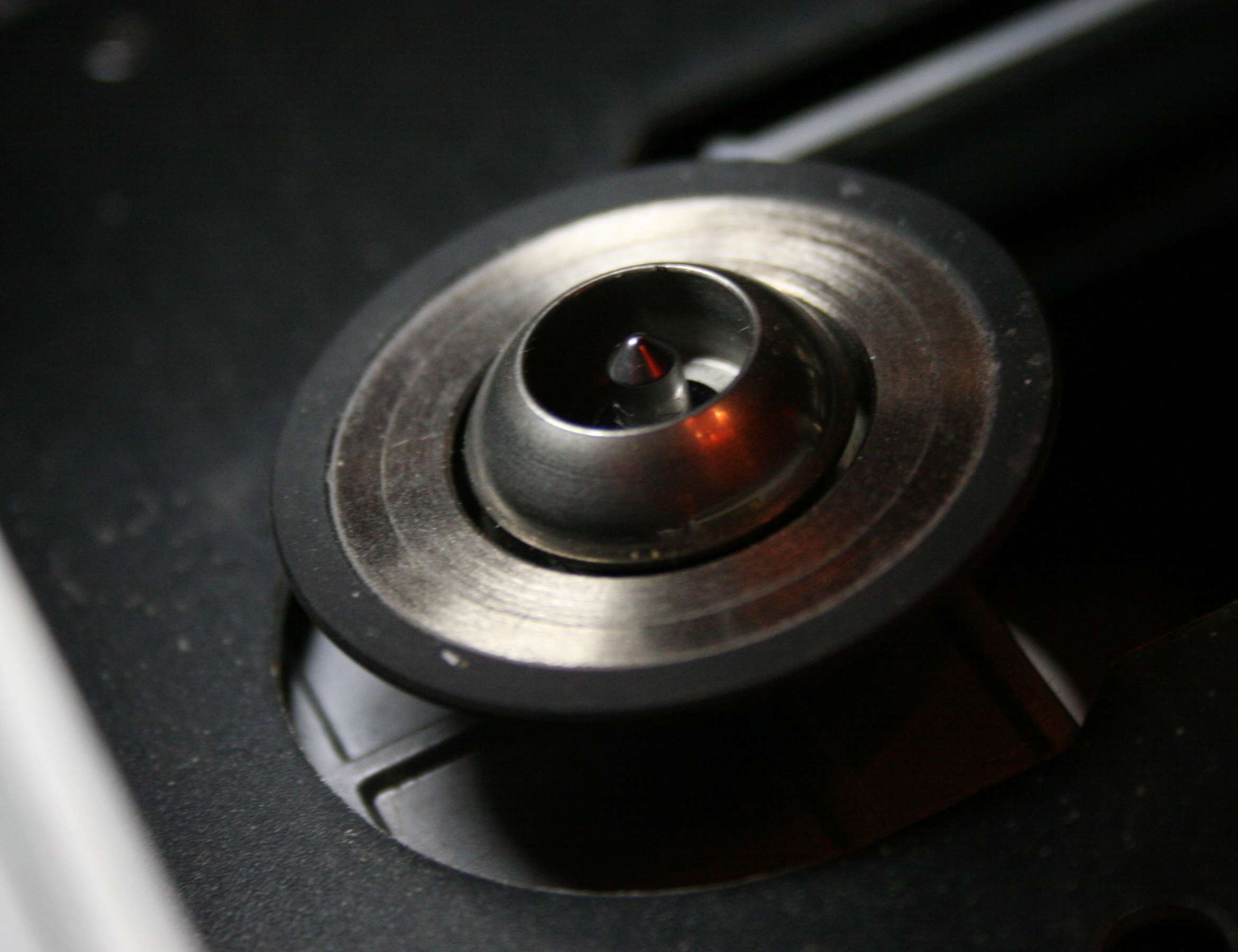
Impressive
spindle, all machined from one block of metal.

The 190A laser
on magnetically floating HAAL motor sledges...

Usual outputs...
LAMPIZATION
PROCESS:
I basically
repeat the most successful schematics of the Grundig 9009:
Tubes - a pair
of 6N2P,
Circuit - 200
Ohm resistors in both cathodes of SRPP
lampizator,
Conversion (for
parallel DAC) is by 56 Ohm,
Anode power 175
VDC
Current is 1mA.
UIn the second
unit I used one Siemens ECC801S triode (a better equivalent of ECC81)
I used it in
triode mode anode follower. One half of tube per channel.
The heaters are
AC and there is no hum !!!
The Ra is 20K
The Rk is 150
Ohms
R i/u
(conversion and grid) is 50 Ohms because this is paralelled DAC.
Normally it would be just under 100 Ohms.
Ia is 3,5 mA
U is 150 V
U Out is 80 V
Lampizator - sound
I am not sure
which version I like better, perhaps the latter one. In any event -
both are absolutely stunning. The dynamics is a little bit better than
in the
Marantz/Philips application of the TDA1541A. It seems that Sony did a
great
job understanding what makes the TDA tick.
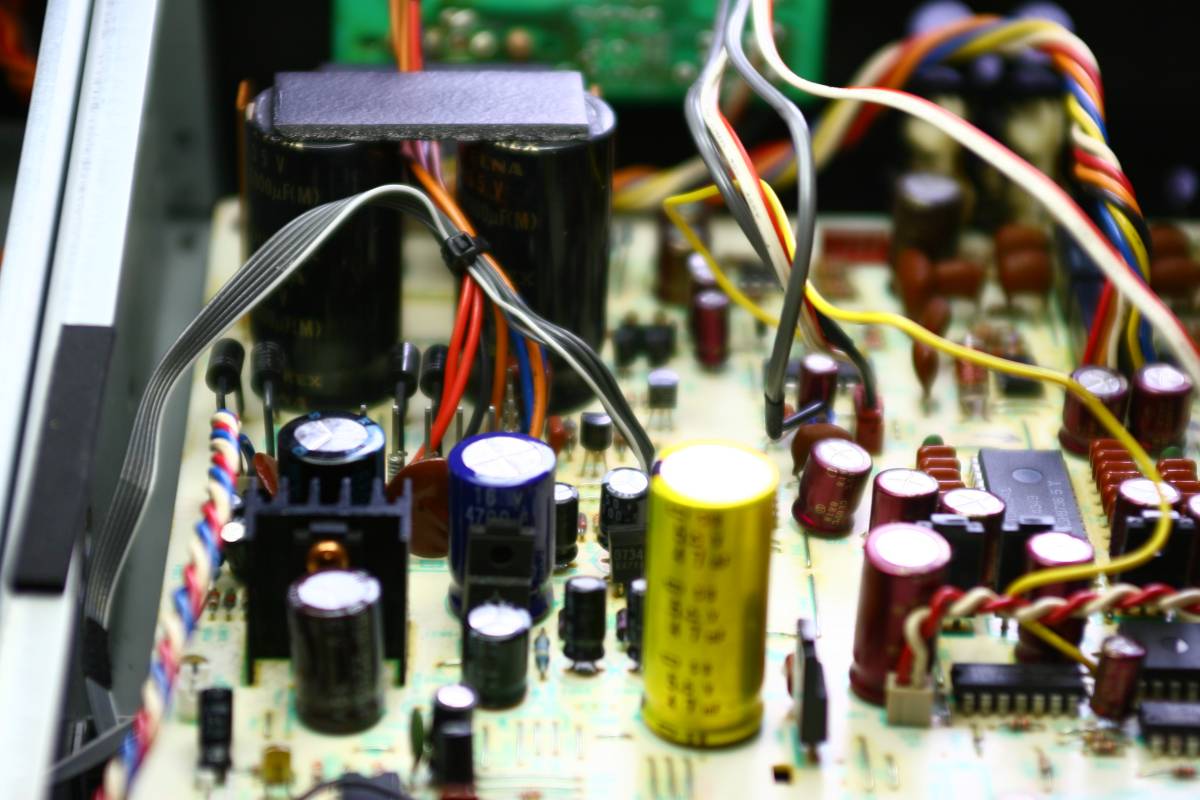
There is more
voltage regulators than in any other player that I have seen, except
maybe the NAIM. But at NAIM the regulators are RELIGION. And rightly so.
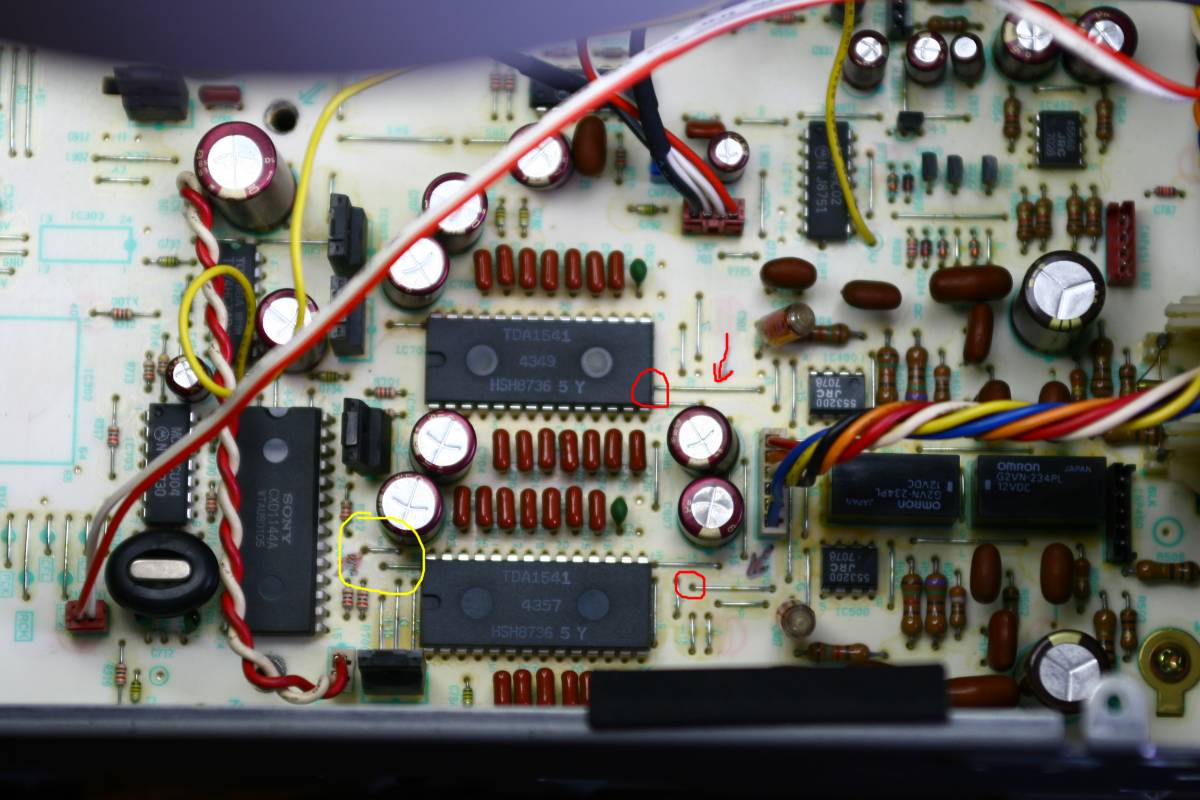
In the red
circles you see the signal stealing points. Just lift the shorting pins
- the ones marked with arrows in red circles and solder a wire to the
empty holes. This forms a perfect signal stealing point. Paralelled
with the other DAC but untouched by any other connection. The whole
current will flow to the tube grid - resistor 50 Ohms. No capacitor.
In the yellow
circle is a pin which is very handy because it represents the ground of
the player.

The yellow and
blue wires steal the signal for lampization.
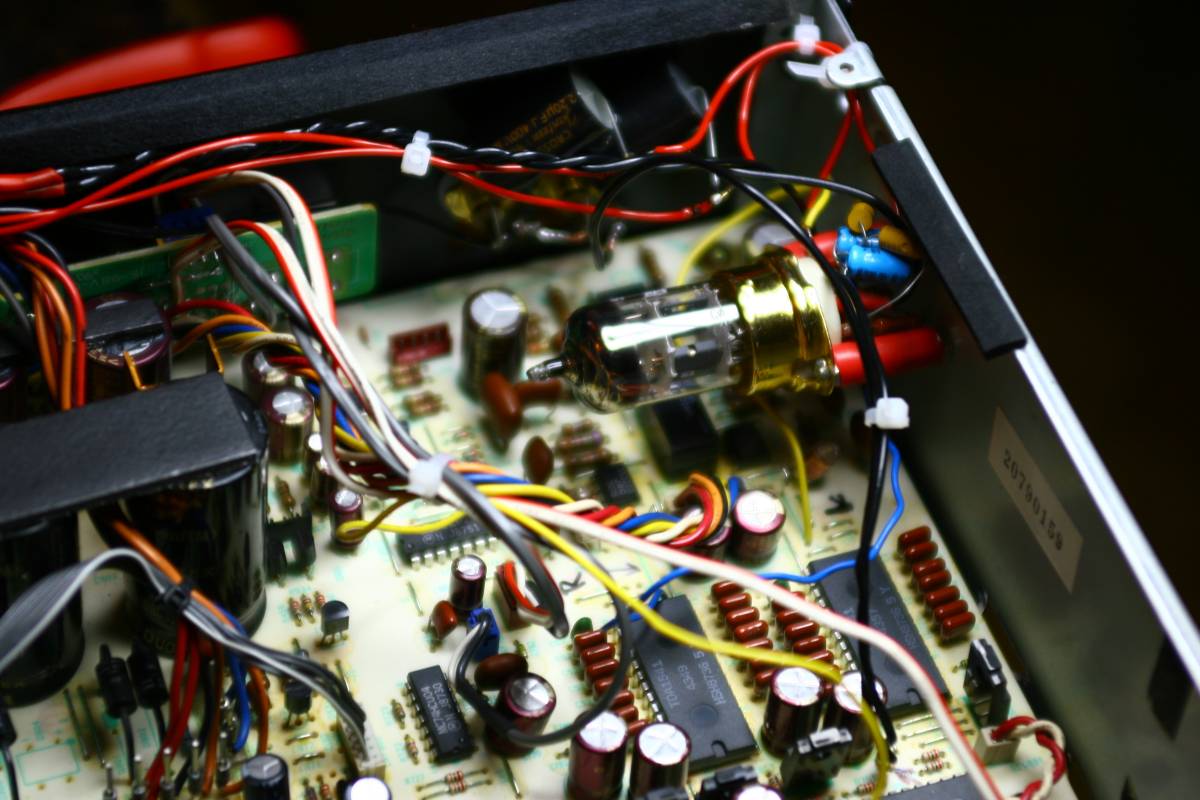
The Siemens tube
fits nicely there, and pay attention please - it is not directly above
the DAC because of heat. TDA 1541A is a very hot chip and it needs
space to
breathe.
The SAA7220p/B is even hotter, it is DAMN HOT chip. At least in the
Sony they don't use it.
Final
words about the Sony CDP-337ESD:
Is the TDA1541A
chip
worth every sin ? Yes, especially inside Sony and Naim players.
Is the Sony
CDP-337ESD
better than the Sony CDP-227ESD weighting half and
costing half but electrically
almost identical - YES, the KSS190A mechanism is worth its weight in
gold.
Is two TDA's
better than one ? No, its not.
If you get this
player and want to keep it forever - replace the DAC capacitors
touching legs 28, 26 and 15 with black gate caps, change the 28
decoupling caps with 0,47uF (470nF) MKP and change the DAC for
TDA1541A-S1 crown
ones.
That will be the
last CD player you will ever own !!!
BACK


















